
Simon Marks 4pm - 7pm
15 February 2023, 13:20 | Updated: 15 February 2023, 14:02
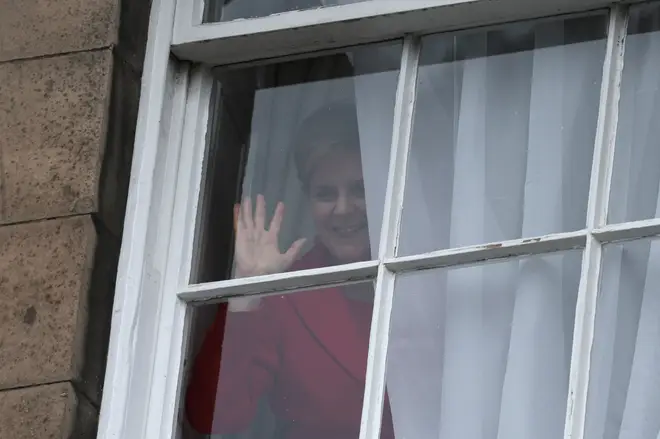
Nicola Sturgeon has resigned as First Minister of Scotland after facing controversy over her attempts to reform gender recognition laws.
First Minister of Scotland, Nicola Sturgeon has resigned at a press conference held at her official residence of Bute House, Edinburgh.
Ms Sturgeon, who will leave office as the longest-serving and first female First Minister since the creation of the Scottish Parliament in 1999, will be remembered for her fierce pursuit of Scottish independence and her firm handling of the Covid-19 pandemic.
READ MORE: Nicola Sturgeon quits as First Minister of Scotland in shock resignation
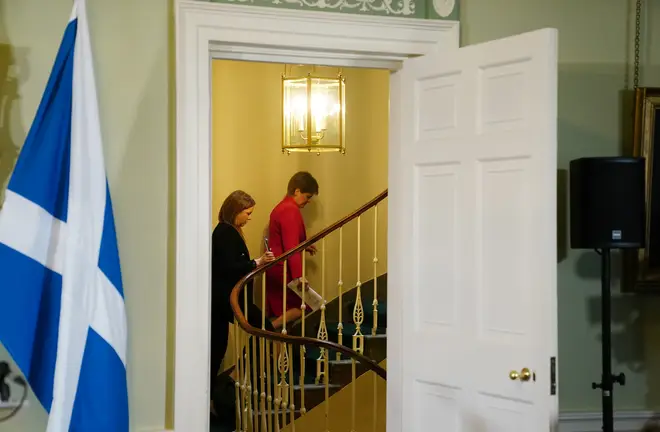
"In my head and in my heart I know that time is now," she told the press conference, confirming she will stay in post until a successor is elected by her party. Ms Sturgeon will also step down as SNP leader.
Ms Sturgeon was born on July 19 1970 in Irvine, a coastal town in North Ayrshire, Scotland. She describes herself as a shy child who preferred to sit with "her head in a book" than talk to people.
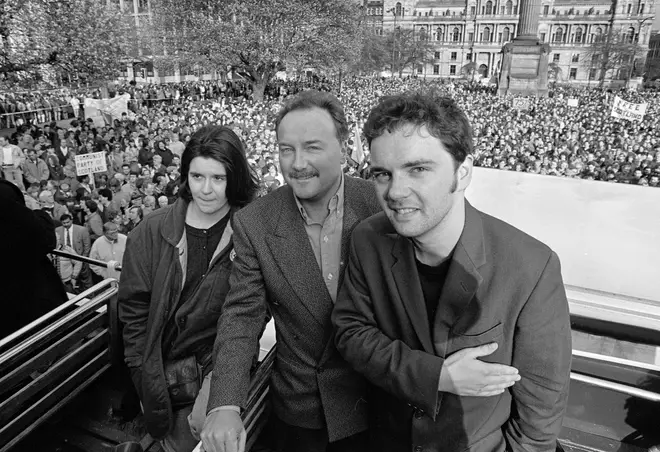
At 16, she joined the Scottish National Party (SNP), crediting her early emergence into the political sphere to Margaret Thatcher - who acted as a spearhead for strong women in politics but whose Conservative policies Ms Sturgeon vehemently opposed.
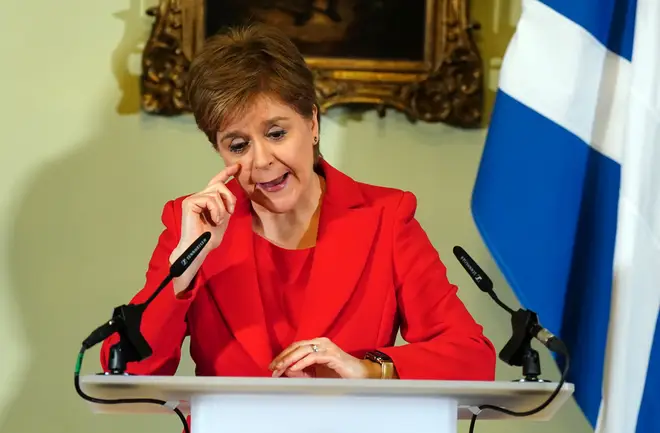
After obtaining a law degree in from the University of Glasgow, she became a solicitor with a Glasgow law firm but didn’t leave behind her political ambitions, eventually becoming Scotland’s youngest parliamentary candidate age 22 in Britain’s 1992 general election.
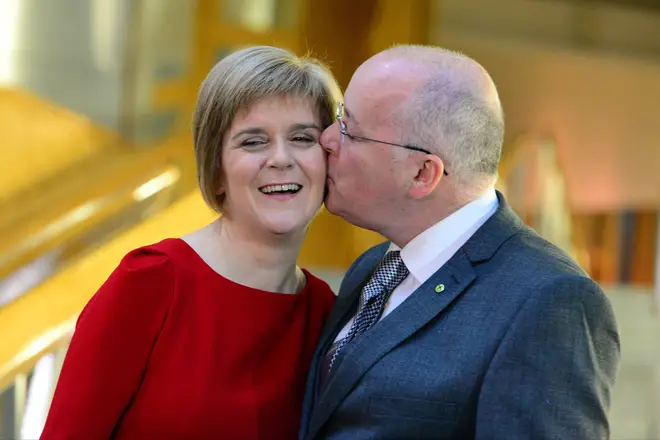
Ms Sturgeon climbed the ranks of the party, winning a seat as a member of the Scottish Parliament (MSP) in the new legislative body’s first election in 1999. She became deputy leader minister for public health and well-being after Alex Salmond took the top spot as First Minister in 2007.
She married Peter Murrell in 2010, the chief executive officer of the SNP. Speaking of her marriage to someone in the same line of work, Ms Sturgeon told The Daily Record: "The up side is that Peter understands what's going on and why I am late home all the time. The down side is that you just end up talking about it all the time and you never leave it outside."
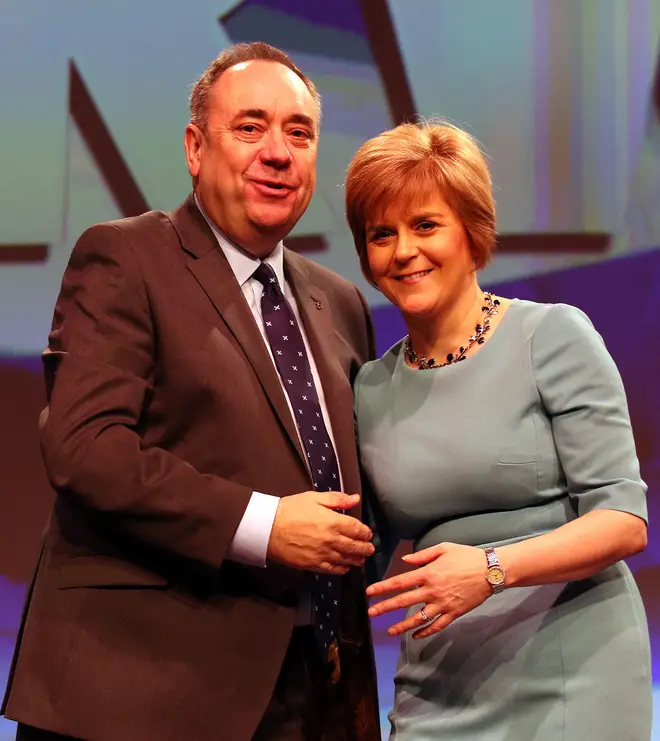
After defeat in the 2014 Scottish independence referendum, Ms Sturgeon was voted in as First Minister following Salmond's resignation.
The UK referendum decision to leave the European Union, in which 62% of Scots voting remain, sparked a strengthened interest in Scottish independence.
Ms Sturgeon appealed to disaffected Brits to use Scotland as a refuge: “Scotland isn’t full up. If you are as appalled as we are at the path this Westminster government is taking, come and join us. Come here to live, work, invest, or study.”
Under Ms Sturgeon, SNP's seats in Westminster multiplied, most of which were taken from Labour, for which Scotland had long been a stronghold. But now, the Scottish leader will stand now from the post without having achieved her key political aspiration of Scottish independence, a pursuit that was eroded when the leader was confronted with other pressing challenges, including the Covid-19 pandemic and a scandal involving Alex Salmond.
Ms Sturgeon was praised for her handling of the Covid-19 pandemic, in which she announced a string of restrictions to curb the spread of the virus. Her policies fared better than England in terms of number of cases and deaths however recently her government has come under fire as the NHS struggles to recover from the impact of the pandemic.
But hopes for Scottish independence diminished when the Supreme Court ruled last year that that Holyrood could not lawfully legislate on the constitutional issue of independence. Ms Sturgeon had decided to frame the general election campaign as a 'de facto' second independence referendum, but said a successor would be without the polarised opinions people have of her.
Most recently, she had been embroiled in controversy over her attempts to reform gender recognition laws, which led to concerns that sex offenders could use the simplified rules to switch their officially recognised gender.
The UK Government blocked the Gender Recognition Reform (Scotland) Act which made it easier to self-identify as a chosen gender.
Ms Sturgeon was criticised by nationalists for harming the independence movement as support for detaching from the UK fell. Mr Salmond had attacked her for getting involved in "some daft ideology imported from elsewhere" while Harry Potter author, JK Rowling repeatedly hit out at the leader for "riding roughshod over the rights of women and girls".
READ MORE: JK Rowling hits out at Labour for backing Nicola Sturgeon's controversial gender self-ID laws
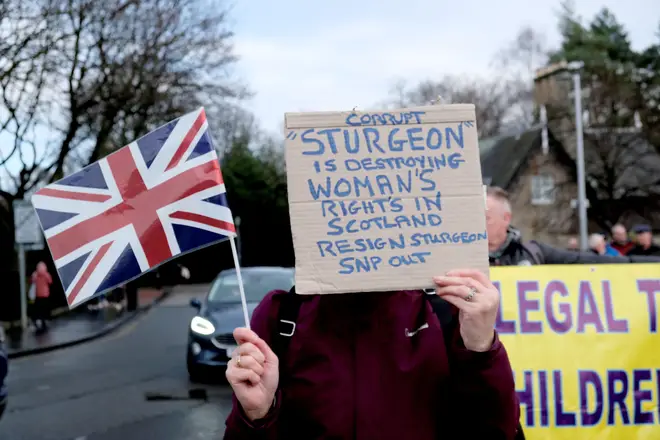
Ms Sturgeon said during her resignation: "This decision is not a reaction to short term pressures," she insisted, admitting it could easily look like that."
She described the job as "a privilege beyond measure, one that has sustained and inspired me in good times and through the toughest hours of my toughest days".
"I'm not expecting violins here. But I am a human being as well as a politician," she added.
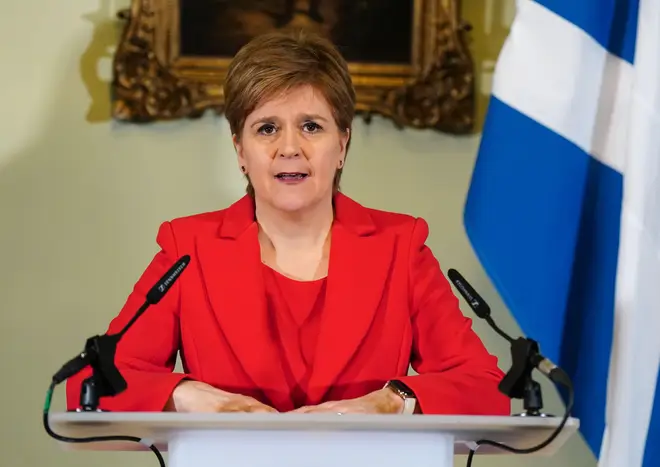
READ MORE: Read in full: Nicola Sturgeon's shock resignation speech